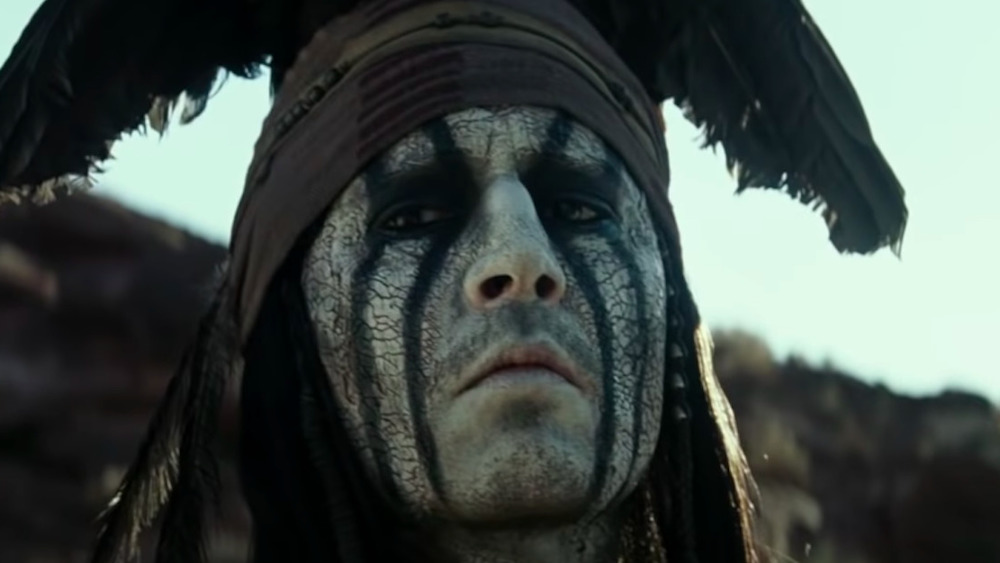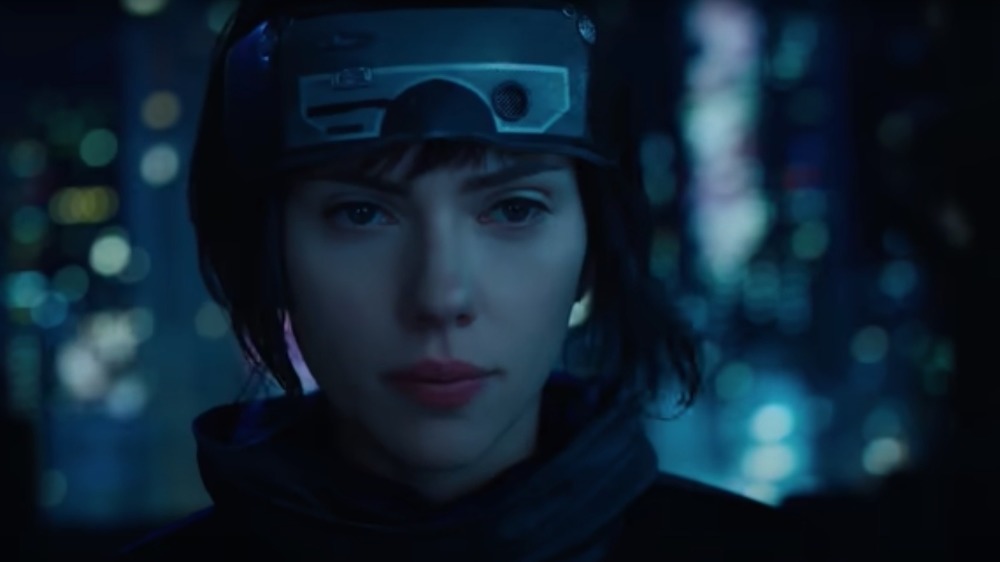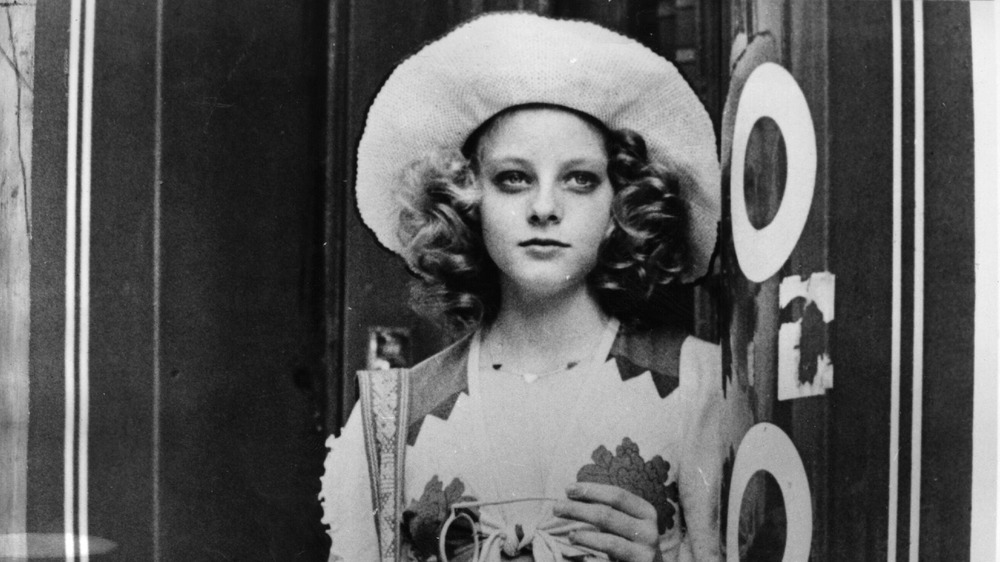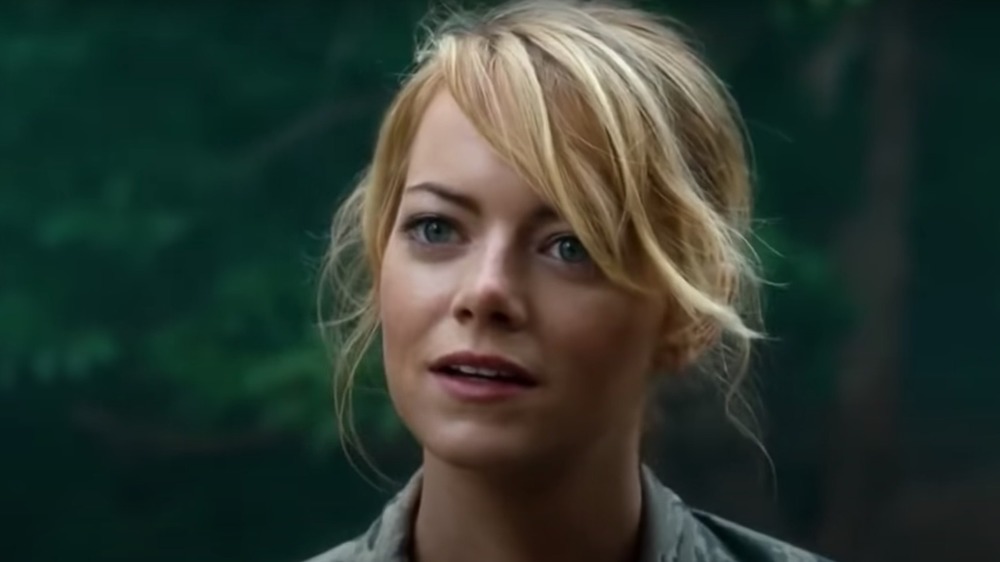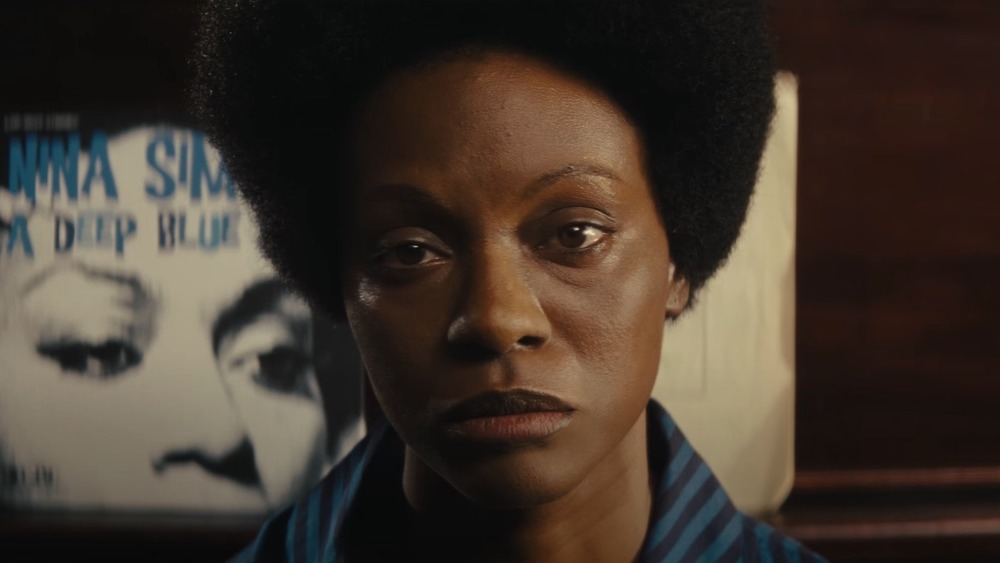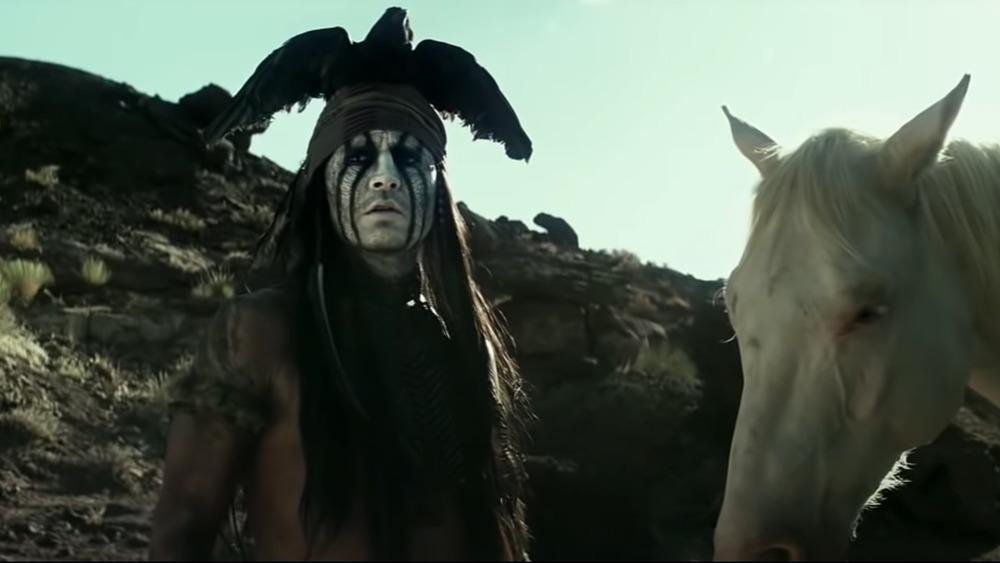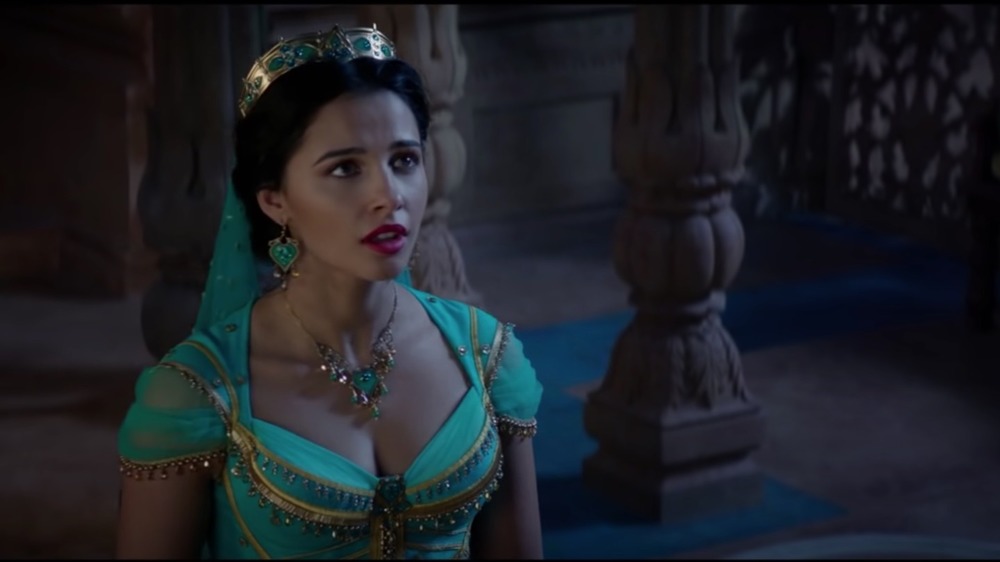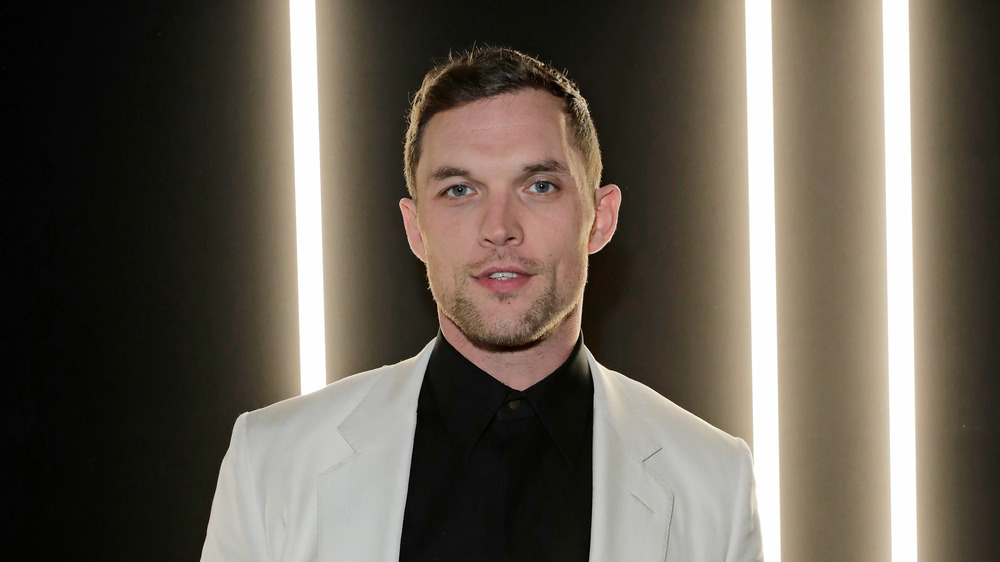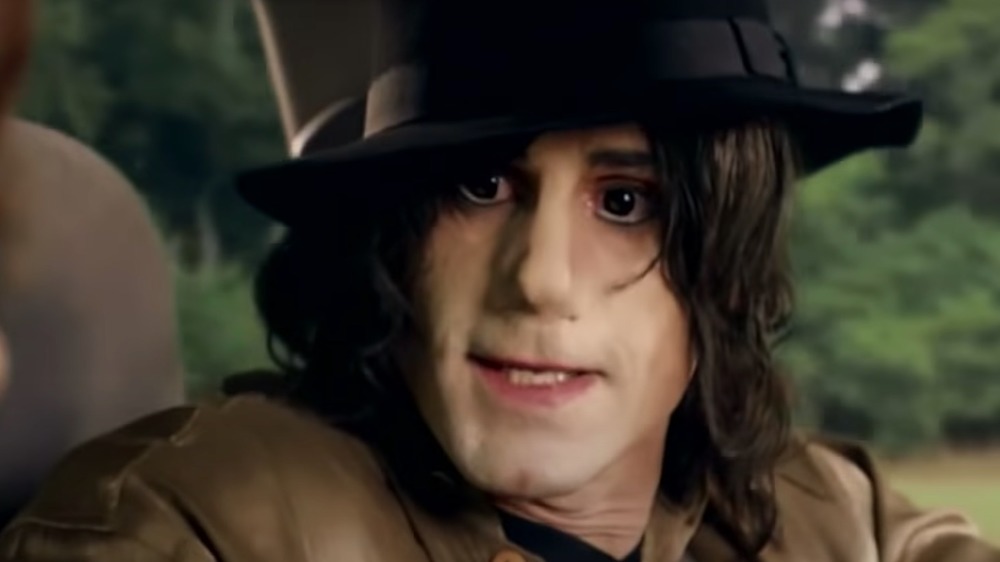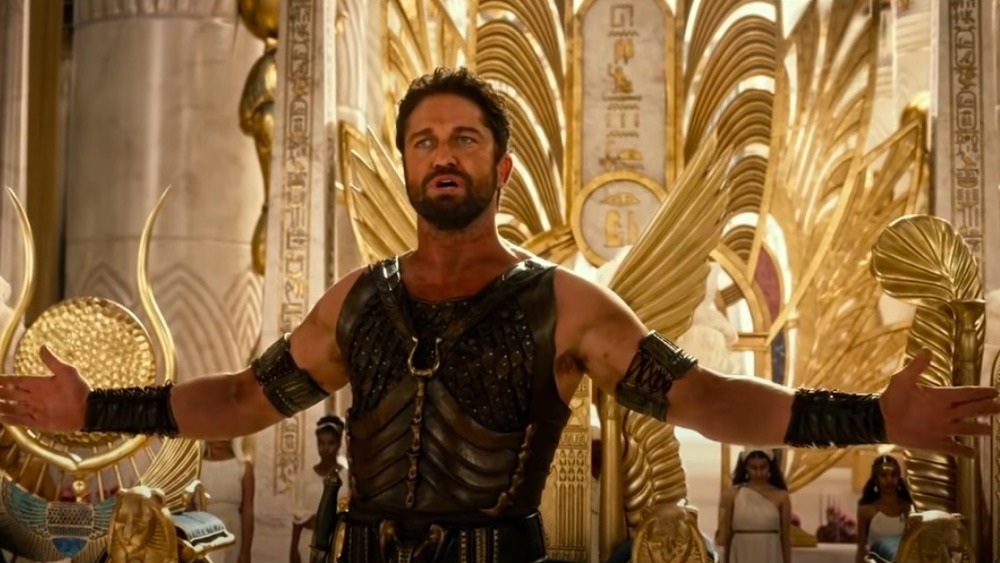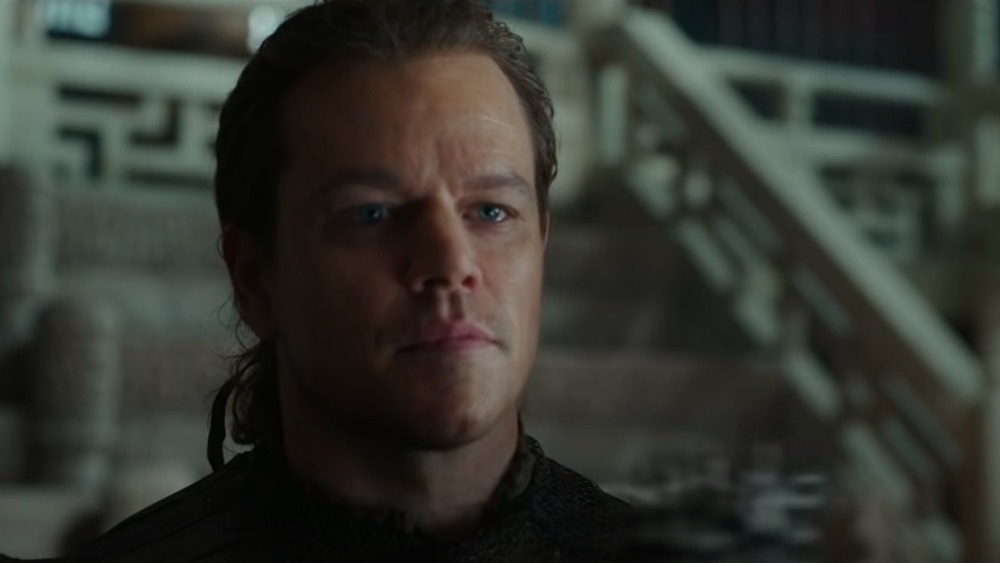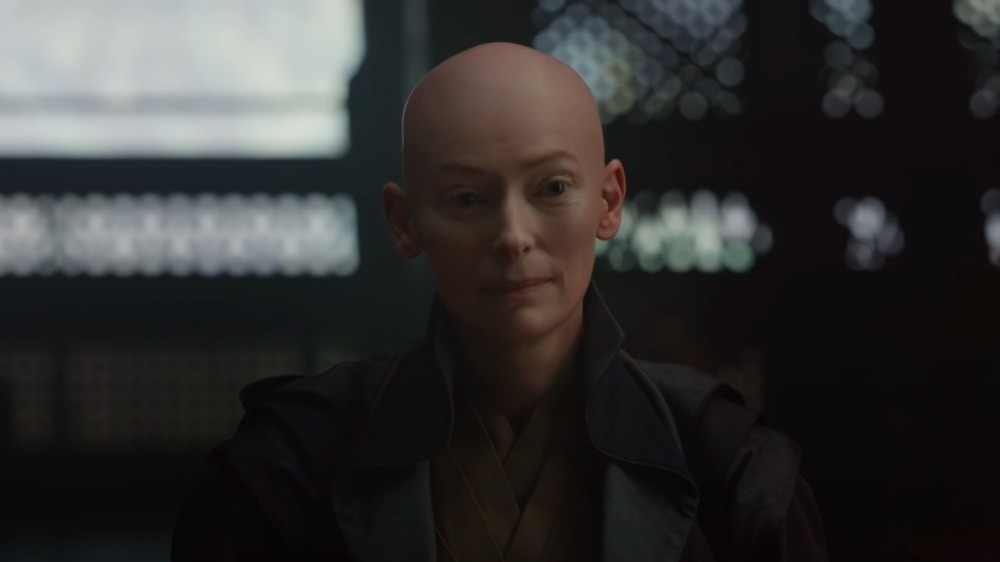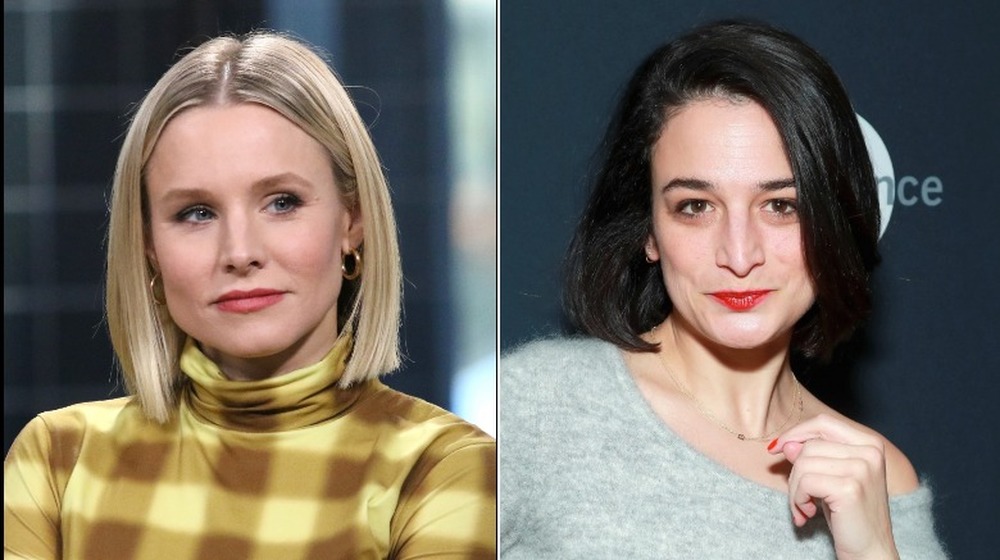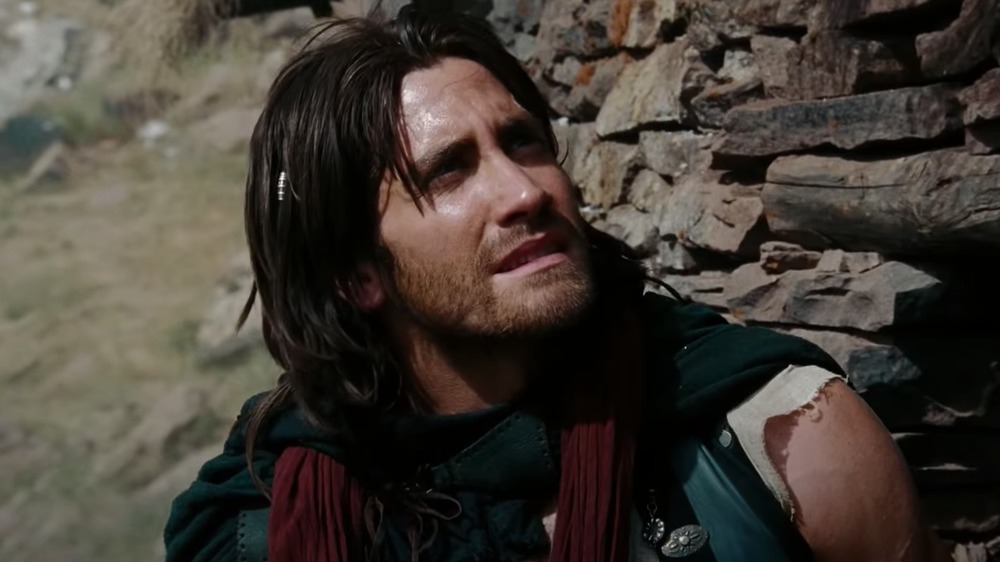The Wildest Casting Controversies Of All Time
Casting is one of the most underrated cogs within the Hollywood movie-making machine, yet it's also one of the most crucial. The process of pairing the right actor with the right role can make or break a film, sometimes resulting in screen performances so iconic it's impossible to imagine any other actor in the role — Harrison Ford as Indiana Jones, springs to mind, as does Al Pacino as reluctant mob boss Michael Corleone in The Godfather movies.
Yet casting directors don't always get it right. Sometimes this has to do when a director's vision of bringing a beloved character from a book or comic to the screen differs from that of fans or could involve "whitewashing," in which an actor plays a character of different ethnicity. When these types of issues arise, those fans have been known to take to social media en masse or launch petitions to make their opinions known — occasionally resulting in an actor stepping away from those roles and another cast.
For examples of casting that didn't go over well at all, keep reading to find out all about the wildest casting controversies of all time.
Scarlett Johansson's casting in Ghost in the Shell drew charges of whitewashing
When adapting popular Japanese anime Ghost in the Shell as a live-action movie, Scarlett Johansson was cast in the lead role as a cyber-enhanced cop. Controversy ensued due to the fact that the original character is Japanese, while the fair-haired, pale-skinned Johansson is clearly not.
As The Guardian reported, a petition called for an Asian actress to be cast instead. "I certainly would never presume to play another race of a person. Diversity is important in Hollywood, and I would never want to feel like I was playing a character that was offensive," Johansson told Marie Claire of the controversy — which ultimately didn't prevent her from starring in the film.
That wasn't Johansson's only casting controversy; in 2018, Deadline reported that she'd be starring as a transgender man in the film Rub & Tug. That announcement led to a fresh round of backlash, which Johansson addressed in a statement. "Tell them that they can be directed to Jeffrey Tambor, Jared Leto, and Felicity Huffman's reps for comment," she said, referencing cisgender actors who'd won acclaim for portraying trans characters. When the controversy didn't die down, she eventually pulled out of the project (via Variety).
Jodie Foster was just 12 when she was cast as a sex worker in Taxi Driver
Jodie Foster memorably portrayed teenage sex worker Iris in Martin Scorsese's critically acclaimed Taxi Driver. While the 1976 film is now considered a cinematic classic, her age at the time — she was just 12 when she was cast — became a cause for controversy. As Foster recalled for W, she'd previously worked with Scorsese on Alice Doesn't Live Here Anymore when the director contacted her mother about having Foster play Iris. "And we read the script and she thought he was crazy," said Foster, describing her mom's initial response.
In The Hollywood Reporter's oral history about the making of the film, Foster detailed how the production handled some of her more provocative scenes. "Part of the deal was that any scenes that felt uncomfortable sexually, they would have an adult be a stand-in," she said. "So my sister Connie, who was over 18, stood in for a couple of over-the-shoulder shots."
Ultimately, Foster held no regrets about taking the role, which won her an Oscar nomination for Best Supporting Actress. "I'm just so grateful to have been part of something that's really an American classic," she told The Hollywood Reporter.
Emma Stone playing an Asian character in Aloha stirred up controversy
When Cameron Crowe cast actress Emma Stone in his 2015 dramedy Aloha, he had no inkling of the backlash that decision would unleash. Playing Allison Ng, a half-Chinese Hawaiian woman, Stone found herself embroiled in controversy. "I've become the butt of many jokes," Stone admitted in an interview with News.com. "I've learned on a macro level about the insane history of whitewashing in Hollywood and how prevalent the problem truly is. It's ignited a conversation that's very important."
Writing in a blog post for his website, Crowe explained that whitewashing was certainly not his intent. As he wrote, the character was based on an actual person he'd met in Hawaii, "a real-life, red-headed local" who was "a super-proud one-quarter Hawaiian who was frustrated that, by all outward appearances, she looked nothing like one."
However, Crowe also conceded that he'd "heard your words and your disappointment, and I offer you a heart-felt apology to all who felt this was an odd or misguided casting choice."
Zoe Saldana's casting as Nina Simone riled the late singer's estate
Zoe Saldana starred in the 2016 film Nina, a biopic about legendary singer/activist Nina Simone. This proved problematic, given that Saldana has little physical resemblance to the woman she was portraying. In fact, reported Jezebel, a prosthetic nose and extensive makeup to darken her skin tone were required to transform Saldana into Simone. The late singer's family were not fans of the casting; when Saldana shared the trailer on social media, Simone's estate tweeted, "Hopefully people begin to understand this is painful. Gut-wrenching, heartbreaking, nauseating, soul-crushing. It shall pass, but for now..."
Simone's daughter, Lisa Simone Kelly, blasted Saldana's casting when she told The New York Times, "My mother was raised at a time when she was told her nose was too wide [and] her skin was too dark. Appearance-wise this is not the best choice."
Saldana later expressed her regret at taking the role. "I should have never played Nina," the actress admitted in a video interview posted on Instagram. "I should have tried everything in my power to cast a Black woman to play an exceptionally perfect Black woman."
Maddie Ziegler playing an autistic teen in Sia's Music proved upsetting to the autism community
Best known as a singer and songwriter of such hits as "Chandelier," Sia made her feature-length directorial debut with the 2021 film Music, starring Kate Hudson as a woman who finds herself appointed guardian to her half-sister, Music, who is on the autism spectrum.
Maddie Ziegler — Sia's frequent collaborator, who's appeared in several of the singer's music videos and stage performances — was cast as Music. That choice, however, raised the ire of members of the autism community. As one Twitter user complained, the casting was "yet another example of Hollywood casting a non-disabled actor to play a disabled character." Even the National Autism Society took her to task, tweeting that Sia "has got this one wrong," pointing to a number of "talented autistic actors" she could have hired.
Sia responded to the backlash in an interview with Australian TV's The Sunday Project, reported Billboard. "I mean, it is ableism I guess as well, but it's actually nepotism because I can't do a project without her," she said of Ziegler. "I don't want to. I wouldn't make art if it didn't include her."
Johnny Depp took heat for portraying a Native American in The Lone Ranger
When The Lone Ranger made its television debut way back in 1949, the masked lawman's Native American companion, Tonto, was portrayed by indigenous actor Jay Silverheels. In the 2013 reboot, however, the role went to non-Native American Johnny Depp. In an interview with Total Film (via Indian Country), Depp defended his casting, insisting he wasn't playing the character as "a sidekick ... but as a warrior with integrity and dignity. It's my small sliver of a contribution to try to right the wrongs of the past."
That view wasn't shared by some Native Americans. "This represents a major setback in our efforts to combat stereotyping of our image," Hanay Geiogamah, Native American playwright and professor at UCLA's School of Theater, Film and Television, told the Los Angeles Times of Depp portraying Tonto.
Quoted by Time, Native American blogger and activist Adrienne Keene wrote that she'd initially "had a teensy-tiny bit of hope that this wouldn't be another othering-stereotype-filled-horror, but clearly I was so wrong." After seeing the critically lambasted movie, she jokingly remarked she was glad Depp played the role — because it saved an actual Native American from being "embroiled in that mess."
Controversy erupted when Indian-British actress Naomi Scott was cast as an Arab character in Aladdin
In recent years, Disney has been delving into its back catalog to produce live-action remakes of its animated classics, which have included such films as Cinderella, Beauty and the Beast, and Dumbo. When the studio decided to remake 1992's Aladdin, however, Disney was hit with backlash, with the Council on American-Islamic Relations issuing a statement declaring that the "Aladdin myth is rooted by racism, Orientalism and Islamophobia."
Further controversy came when Disney announced that actress Naomi Scott had been cast in the role of Princess Jasmine. While the story is set in the fictional land of Agrabah, the setting is clearly depicted as ancient Arabia. As HuffPost pointed out, Scott isn't from the Middle East, but is "of mixed British and Gujarati Indian descent."
Mena Massoud, who played Aladdin, addressed the controversy in an interview with The New York Times. "It's a funny thing that's happening online," he said. "The Middle Easterners want Aladdin to be a Middle Eastern story, and the Indians want Aladdin to be an Indian story. The truth is, it's really a folk tale from the 1800s, and Agrabah is a fictional place that's a culmination of India and Asia and the Middle East."
Controversy over his casting led Ed Skrein to quit Hellboy
In 2017, Ed Skrein was announced as part of the cast of a rebooted Hellboy, which had previously been adapted from a popular comic book series into a successful film franchise. Skrein's casting was hit with backlash due to the fact that the character that the white British actor was to play — Major Ben Daimio — is Japanese-American in the original comics.
Before the controversy had much chance to take hold, Skrein got proactive and shared a statement on Instagram to reveal he was stepping away from the role so that it "can be cast appropriately." In his statement, Skrein declared that "representing this character in a culturally accurate way holds significance for people, and that to neglect this responsibility would continue a worrying tendency to obscure ethnic minority stories and voices in the Arts. I feel it is important to honor and respect that."
Korean-American actor Daniel Dae Kim was ultimately cast in the role. "I'd heard about the controversy even before I knew I was gonna be a part of this project," Kim told Collider, admitting he was "really deeply moved and very impressed" by the way Skrein handled things.
Criticism of Joseph Fiennes playing Michael Jackson in Urban Myths led to the episode being pulled
The 2017 British TV series Urban Myths had a uniquely twisted premise, offering bonkers dramatizations of such urban legends as the unexpected friendship between playwright Samuel Beckett and pro wrestler Andre the Giant.
One episode focused on an apocryphal tale in which Michael Jackson (played by Joseph Fiennes), Elizabeth Taylor (Stockard Channing), and Marlon Brando (Brian Cox) hopped into a car and fled New York City in the aftermath of 9/11. When the late singer's daughter, Paris Jackson, was asked via Twitter how she felt about Fiennes playing her dad, she responded in a since-deleted tweet, reported InTouch. "I'm so incredibly offended by it, as I'm sure plenty of people are as well, and it honestly makes me want to vomit," she wrote
As the backlash grew, the series' broadcaster, Sky Arts, pulled the episode before it even aired. "We have taken the decision not to broadcast Elizabeth, Michael and Marlon, a half-hour episode from the Sky Arts Urban Myths series, in light of the concerns expressed by Michael Jackson's immediate family," Sky Arts said in a statement obtained by BBC News, adding that Fiennes "fully supports our decision."
Gods of Egypt was slammed for casting no Egyptian actors
The 2016 film Gods of Egypt boasted an international cast — including Scottish actor Gerard Butler, the late Chadwick Boseman who was American, Australian Bryan Brown, French actress Élodie Yung and Danish Game of Thrones star Nikolaj Coster-Waldau — playing Egyptian deities. One nation that was wildly underrepresented, ironically, was Egypt, and critics made no bones about pointing out the incongruity of a movie called Gods of Egypt in which none of the lead actors were Egyptian. Actress Bette Midler put an even finer point on it when she tweeted, "Movie, #GodsOfEgypt in which everyone is white? Egyptians, in history and today, have NEVER been white. BRING BACK GEOGRAPHY!! It's Africa!"
Accusations of whitewashing led the film's studio, Lionsgate, to issue a statement of apology, admitting "we failed to live up to our own standards of sensitivity and diversity," reported Forbes. Butler, however, told Yahoo! Movies that while he understood "the movement generally," he felt the criticism leveled at the film "was a little too much to try and damage a movie like that."
In any case, the controversy didn't help the film at the box office, where it took in $150 million worldwide — but had cost $140 million to make.
Matt Damon defended his starring role in The Great Wall after whitewashing accusations
In the 2016 fantasy The Great Wall, Matt Damon plays a European mercenary who teams up with a clandestine Chinese army that defends the Great Wall from marauding dragons. As GQ pointed out, the "massively expensive" movie was set in China and featured a predominantly Chinese cast, yet Damon — who is decidedly not Chinese — is its star. The result: a wannabe blockbuster "made for both Chinese and American audiences" that "ends up appealing to no one."
Not surprisingly, The Great Wall was hit with charges of whitewashing, which may or may not have been warranted. Damon defended his casting in an interview with AP, admitting he figured the backlash would die down "once people see that it's a monster movie and it's a historical fantasy and I didn't take a role away from a Chinese actor ... it wasn't altered because of me in any way."
Tilda Swinton asked Doctor Strange fans to keep an open mind about her role
When Marvel's Doctor Strange prepared to hit the screen, with Benedict Cumberbatch playing the titular super-sorcerer, one particular piece of casting riled up fans of the original comic book. In the comics, Doctor Strange is mentored by the Ancient One, who's depicted as being an elderly Asian man. In the movie, however, the character is played by British actress Tilda Swinton — who is neither elderly, Asian, nor male.
Addressing complaints that a white actor was cast as an Asian character, Marvel Studios issued a statement. "Marvel has a very strong record of diversity in its casting of films and regularly departs from stereotypes and source material to bring its MCU [Marvel Cinematic Universe] to life," the statement explained. "The Ancient One is a title that is not exclusively held by any one character, but rather a moniker passed down through time, and in this particular film the embodiment is Celtic."
Swinton herself spoke out about the casting controversy, telling The Hollywood Reporter that she "wasn't asked to play an Asian character, you can be very well assured of that."
Kristen Bell and Jenny Slate quit their respective shows over concerns that white actresses were voicing Black cartoon characters
Casting controversies occasionally pop up with animated projects, which was the case with several problematic casting choices in 2020. Among these was the Fox network's decision to recast the role of Family Guy neighbor Cleveland Brown, which had originally been voiced by Mike Henry (who is white), with Black actor Arif Zahir taking the role.
Meanwhile, white actresses Kristen Bell and Jenny Slate were each voicing characters of color in the animated series Central Park and Big Mouth, respectively. Both took to social media to announce they were stepping down from the roles so they could be recast with Black actors. As Slate wrote, she acknowledged that her "original reasoning was flawed," and "existed as an example of white privilege and unjust allowances made within a system of societal white supremacy."
In her Instagram post, Bell wrote that voicing a mixed-race character demonstrated "a lack of awareness of my pervasive privilege." Bell also explained that she was "happy to relinquish this role to someone who can give a much more accurate portrayal and I will commit to learning, growing and doing my part for equality and inclusion."
Jake Gyllenhaal eventually admitted it was a bad idea to star in Prince of Persia: The Sands of Time
Jake Gyllenhaal was hit by criticism for portraying a character of a different ethnicity than his own when he starred in the 2010 video game-inspired film Prince of Persia: The Sands of Time. "It's not only insulting to Persians, it's also insulting to white people," blogger Jehanzeb Dar told The Associated Press (via CBC News) of why Gyllenhaal's casting was so off base. "It's saying white people can't enjoy movies unless the protagonist is white."
A decade later, Gyllenhaal revealed what he'd come to take away from the Prince of Persia casting controversy. "I think I learned a lot from that movie in that I spend a lot of time trying to be very thoughtful about the roles that I pick and why I'm picking them," he said in an interview with Yahoo! Entertainment. "And you're bound to slip up and be like, 'That wasn't right for me,' or 'That didn't fit perfectly.' There have been a number of roles like that. And then a number of roles that do."

